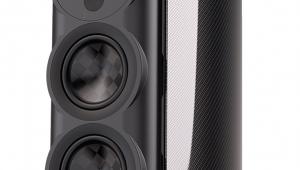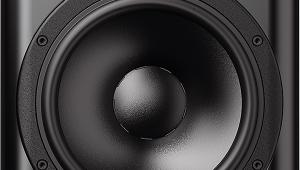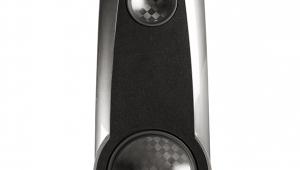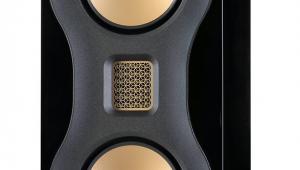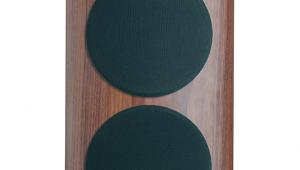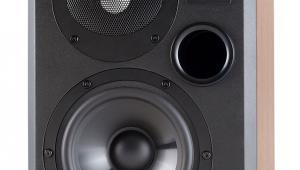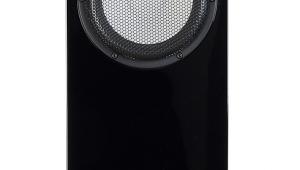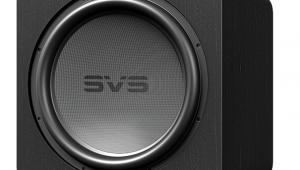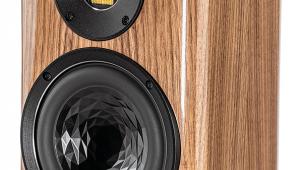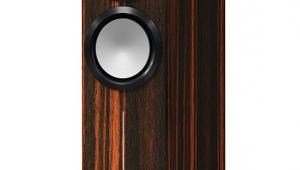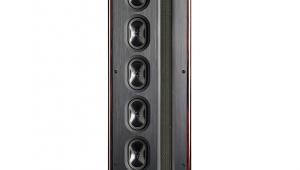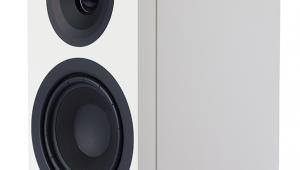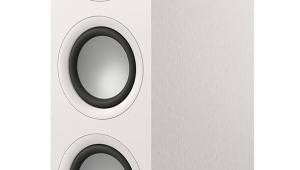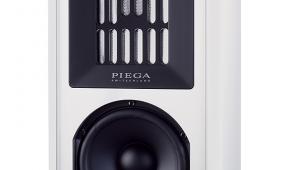GoldenEar Triton Reference Loudspeaker Page 2
![]() Sofa Shake
Sofa Shake
Those side-firing passive bass radiators have an effect on your placement options for the loudspeakers, as they are more affected than usual by interaction with side walls. In PM's listening room we ended up with them well out from the side walls, and angled in quite sharply toward the listening seat in order to get the best imaging. If you are forced to have them closer to the side wall, you can always turn down the bass using the control on the rear panel, but that's hardly ideal, as it robs the speakers of some of their major appeal.
And that appeal is all about the Triton References sounding like a much bigger, and much more expensive, speaker than you might expect. Yes, almost ten grand is hardly snip money, but when it comes to sheer vivacity of music-making, the Reference also pulls off the same trick as its less expensive Triton Five sibling, overshadowing quite a few more expensive 'super-speakers'.
Right from the very first notes played, the simple piano and bass arrangement from 'Letters From Iwo Jima' [from Kyle Eastwood's Time Pieces; Jazz Village JV 570034] shows what the Triton Reference can do, with a sonorous but tightly controlled view of Eastwood's bass and wonderful weight and detail to Andrew McCormack's piano. And with the more upbeat 'Corner Of 3rd And 6th Avenue' that bass is just as persuasive, but here the speakers do a lovely job with the brass of Quentin Collins and Brandon Allen and the crisp percussion of Ernesto Simpson. It's punchy, thrilling and just sparks with life, with Simpson's drum break especially explosive in its impact.
What these speakers do so well is deliver massive weight, while being both nimble on their feet and creating a wide-open soundstage populated with tactile images. All this was clear with the DSD64 release of Yes's 'Roundabout' [Fragile; Atlantic WPCR-15904], where the clean, crystalline acoustic guitar of the opening gives way to the thundering bass of Chris Squire, Bill Bruford's powerhouse drumming and of course Rick Wakeman's tireless noodling and crashing Hammond organ. On too many loudspeakers this track can quickly thicken up and become a mess – not so here!
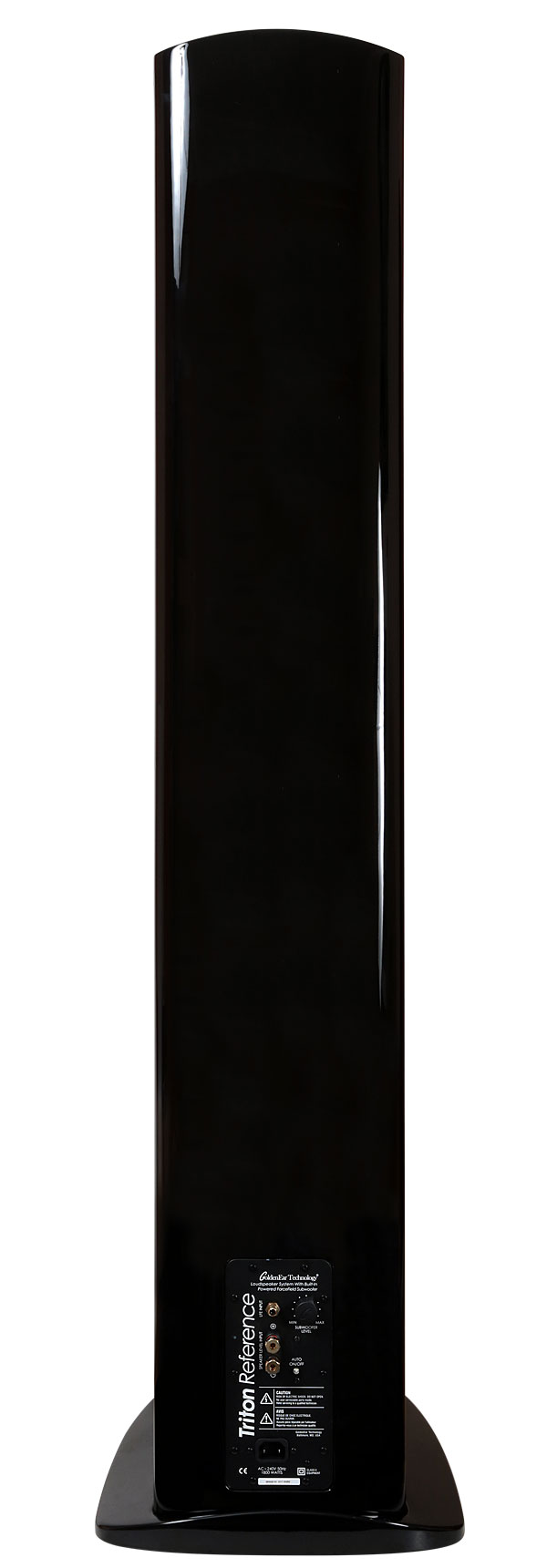
These speakers can deliver genuinely sofa-shaking bass while integrating it perfectly with the rest of the frequency range for a sound that's hugely satisfying. Even with a seemingly simple track like Elton John's 'Border Song', from his eponymous first album [Mercury UIGY-9612; DSD64], the Triton References handle the vocal and piano with fine detail and fluidity, before showing what they can really do when the bass and choir kick in. And with the Hallé Orchestra under Mark Elder playing Holst's The Planets [Hyperion SACDA67270] they show their ability to marshal massed musical forces with unforced clarity, while still conveying all the scale and power of a large orchestra.
I somehow swerved the obvious temptation of shaking the fittings with 'Mars' – that ability would have been a given with these speakers – and instead enjoyed the lightness of touch and sense of space in 'Mercury', with no congestion at all when the orchestra kicks in full force midway and the skittering woodwind and strings quite lovely in their speed and precision.
I was enjoying it so much I let the music roll on into 'Jupiter', grabbed by the warmth and scale on offer and the ability of the speakers to deliver big, crashing dynamics, relax back into subtlety and then gather the power again. This was very much a full orchestra workout, with all tones, textures and colours much in evidence, and the sense of the presence of the orchestra very real.
Out Of This World
With the stripped-back retro sound of Steely Dan's cover of Duke Ellington's 'East St Louis Toodle-oo' [Pretzel Logic; Geffen UIGY-9568], the Triton Reference speakers again show their ability to get to the heart of a track. All the instruments sound striking here, with Walter Becker's talkbox guitar outstanding in its slightly other-worldly sound, and the swing of the track irresistible.
But then that's all part of the magic of these speakers. Whatever you care to play they are able to turn on the thunder when required, or simply let you enjoy the remarkable amount of detail, resolution and musical insight that they offer.
Hi-Fi News Verdict
If the Triton 5 speakers reviewed in March were a striking bargain, the Reference is even more so: a very big-sounding, and very clever, slender floorstanding tower as adept with room-shaking power as it is with unearthing the finest nuances in a recording. Yes, it's in elevated company at nearly £10k, but the performance more than justifies that tag, and challenges more than a few designs with even loftier pricing.

